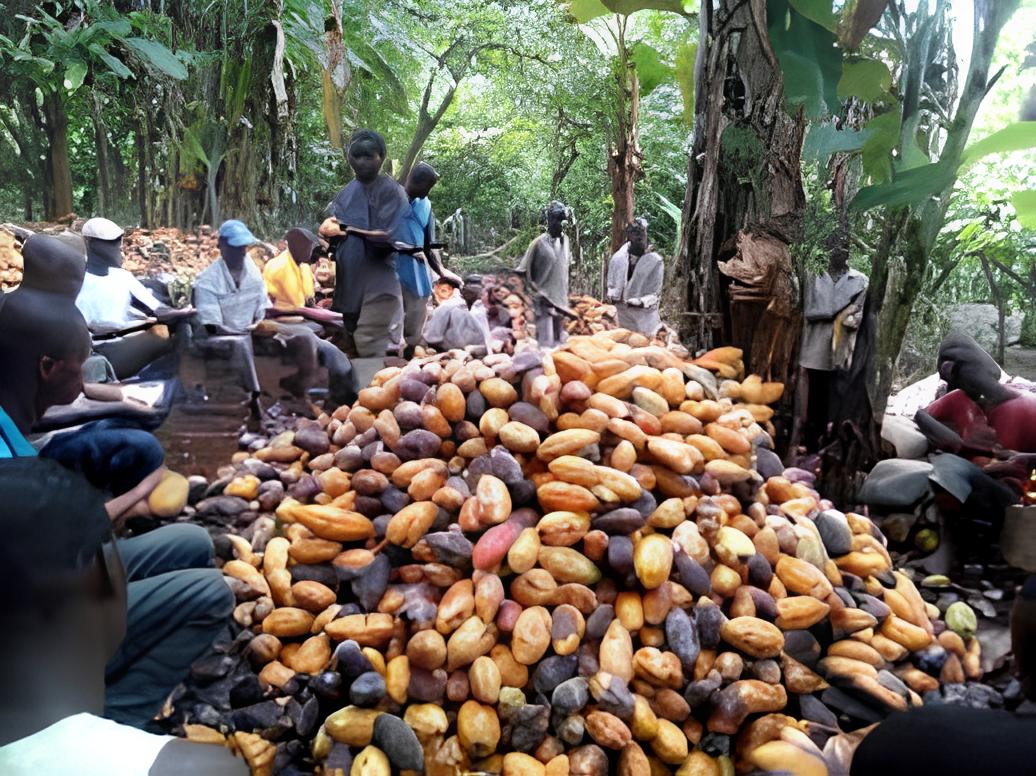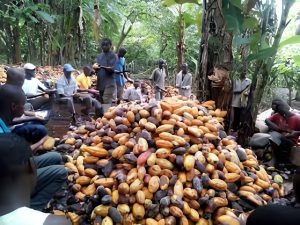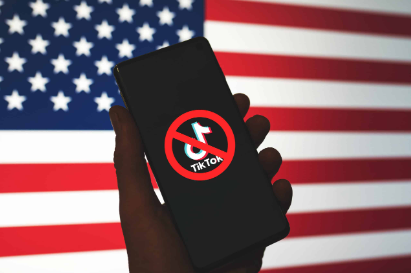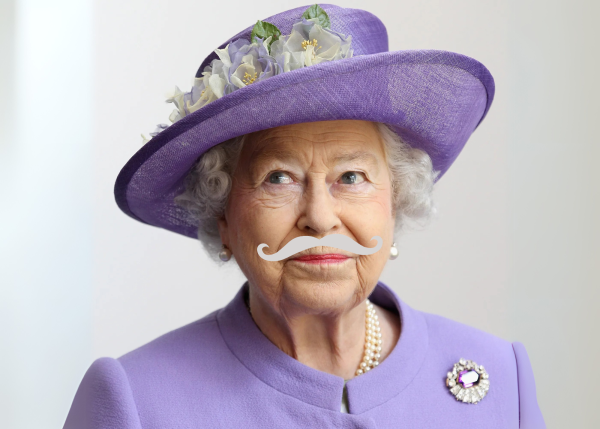
Chocolate treats worldwide are amazing. Some are sweet, some are caramel, and surprisingly, some are dangerous. How are they harmful? Around 7.5 million tons of chocolate were consumed in 2022. That is a lot of chocolate, and with that comes massive profit. The chocolate industry is speculated to be worth 127.9 billion in 2024. The chocolate industry is booming, which allows companies to keep costs low. But that isn’t the full story. For decades, much of the cacao used in your chocolate has been harvested under questionable and dangerous conditions- except for one dutch chocolate company…
In today’s world, most of the chocolate we consume is obtained by child slavery. In Western Africa, specifically, Côte d´Ivoire, Benin, Togo, Ghana, Nigeria, and parts of Cameroon- dangerous and risky methods are used to collect and harvest cacao beans for manufacturing, which violates human rights. They must climb the trees to cut down the cacao pods, risking themselves with the sharp blades and the possibility of harsh, red scars. In some places, they spray chemicals on the knives they use to cut down cacao pods from trees. Once they have collected many, they load it into a sack sometimes weighing over one hundred pounds, and must carry it back across many miles. If they don’t return quickly, they are reprimanded, many times physically. Once back, they must cut the pods in half, risking additional injury from the sharp knives they use to break the tough shells.
Companies like Hershey, Nestlé, Cadbury, and Mars among others conflict with these rules and still buy from the mass producers of cacao, all of whom use child slavery. Children, some even under the age of ten, have been known to work in these hazardous farms. This is not just a couple thousand kids, but around 1.56 million children. Around 600,000 of these children are females, some of who may work longer than their male counterparts, eventually working into their adulthood. Some cacao farmers make as little as 30 cents per chocolate bar, with only 20% of all cacao farmers making more than one dollar per day, which results in 80% of farmers earning less than 7% of the average American teenager’s hourly wage. Some aren’t paid at all. Children work for long hours, sometimes more than 14 hours per day. Even though many of the managers who sadly traffic these kids promise wealth for the families, poverty remains widespread. While away from their home and family, their meals become scarce in taste and price. Children are fed low-quality food, such as corn paste, to save money. At the end of the day, they sleep on wooden planks in a room with no hygienic bathroom or clean water. These stressful conditions also limit knowledge as around 70 percent never get to go to school, which violates the International Labour Organization’s Child Labour Standards, denying them the ability to obtain knowledge that will help them escape poverty. The unfair treatment isn´t just happening to children, as adults also work in these conditions to escape poverty. In the cacao industry, physical abuse is rampant, with children beaten to improve their ¨efficiency¨. Despite all of these harsh conditions, most never get to taste the chocolate they work hard to produce, confined to the plantations for years on years. Making chocolate is a difficult, relentless hardship.

Why are these big companies still using these inhumane methods of slavery? To make cheap chocolate, keep costs low, and maximize profits. They are not just chopping corners, but human rights. People need to stand up against it. In fact, many have. One in particular has strongly gone against them- Teun van de Keuken. One of the founders of the one and only Tony’s Chocoloney, a Dutch chocolate company.
Teun’s life is a story of fighting for the right thing. Teun van de Keuken started his adventure in 2005. To bring publicity to the unfair chocolate industry, he portrayed himself as a chocolate criminal to reveal the unethical practices of big companies. After a setback, he found a new way to express his commitment to end chocolate slavery. Making a business. A chocolate business. Teun officially founded Tony’s Chocoloney in 2005 along with two others. Enraged by the large manufacturers, they dedicate themselves to fighting illegal slavery and raising awareness of the violation of human rights and inequalities being committed massively across West Africa. In 2022, they were estimated to be worth over 140 million dollars, making them one of the biggest companies in the Netherlands and one of the most consumed chocolate bars in the country as well! In 2024, they have grown by 20 million dollars and continue to rise rapidly.
Our duty as fellow humans is to follow Teun in his footsteps and fight for what is wrong. No one should have to spend their life in slavery, especially in 2024. Teun leads a movement to make society better- 100% free from slavery, just like his chocolate. The way all chocolate should be.

Chocolate is one of those sweets that for many, is a delicious treat. For many others, it is an intensive, brutal life. Many of these companies lack a genuine connection to society due to their unruly industrial processes, which harm human rights in the name of efficiency. But is it really efficient? Chocolate farmers struggle through hardship and become less connected to human life- a life that every person deserves. They are stripped of everything essential to their sense of worth. Despite this, these massive corporations that engage in this shady business claim they cannot change the situation. Are they truly trying, or are human rights simply beyond their care for the people they exploit? Chocolate may taste good but as Drissa, a slave who has never tried the brutal chocolate said, “…they are eating my flesh. Every day.”








Elena Kohn • Dec 6, 2024 at 6:32 pm
I actually was able to convince my family to get Tony’s Chocolony from a store using this article as my evidence!
Mr. Loversky • Nov 18, 2024 at 11:45 am
I watched a documentary about the chocolate trade last month. It was so interesting, and so sad! Your article shows the importance of making sure we know where our products come from! Well written, Jaxon!
Emma • Nov 4, 2024 at 1:43 pm
I feel sorry for the workers.
Mackenzie Leahy • Nov 4, 2024 at 1:29 pm
I feel so bad for all of the workers. That was an interesting and impactful story. That was a REALLY GOOD STORY.
Jayden Sertich • Nov 4, 2024 at 1:25 pm
I feel bad for all the workers.
Nick • Nov 4, 2024 at 1:25 pm
Nice story!
Aubrey burke • Nov 4, 2024 at 1:21 pm
Wow, that’s so interesting. I didn’t know it till now!
Hannah Sit • Nov 4, 2024 at 12:49 pm
This is such an impactful story! Very well written as always Jaxon!
Jaxon Smith • Nov 4, 2024 at 1:19 pm
Thank you!
Adrian Colon • Nov 4, 2024 at 10:08 am
I didn´t know that it is so unfair for all the workers.
Jayden • Nov 4, 2024 at 9:58 am
Wow, this is so cool I feel awful for all the workers.
Jillian • Nov 4, 2024 at 9:57 am
Wow, I didn´t know that it is so unfair for all the workers.
Jillian • Nov 4, 2024 at 9:56 am
Wow, I didn´t know that it so unfair for all the workers.
Anna • Nov 4, 2024 at 9:56 am
I did not know that children help make chocolate.
Isla • Nov 4, 2024 at 9:54 am
Wow, this is so cool I feel awful for all the workers.
Zoya • Nov 4, 2024 at 9:45 am
Wow, I had no idea. Very informative.
Nishant Gupta • Nov 4, 2024 at 9:42 am
Thank you for writing this article because it informed me about the harm of chocolate and how the workers are put under questionable conditions
Jaxon Smith • Nov 4, 2024 at 1:20 pm
You’re welcome. I hope you enjoyed it.
Amy Lu • Nov 4, 2024 at 9:37 am
You are making me feel really bad for eating chocolate because these workers are being treated unfairly.
Jaxon Smith • Nov 4, 2024 at 1:19 pm
Don’t feel bad for eating chocolate. Chocolate is good, but the thought can be haunting. It is quite easy to help. If you really want to help, donating to charities or non-profit organizations is a good way to achieve it. Although only Tony´s Chocolonely is featured, there are many people fighting in the gruesome battle.
Naomi • Nov 1, 2024 at 8:50 pm
Wow I never knew this! I was shocked and i feel so bad for the workers, it was great!
Dena • Nov 1, 2024 at 3:41 pm
I have been wanting to try Tony’s chocolate. You have convinced me it is time!
Mrs. Lykins • Nov 1, 2024 at 12:10 pm
Thank you for writing this impactful article.
Kimberly Van Sickle • Oct 31, 2024 at 9:30 am
Hard-hitting story. We have a realistic book in our library called “The Bitter Side of Sweet” by Tara Sullivan that captures the sentiment of this article.